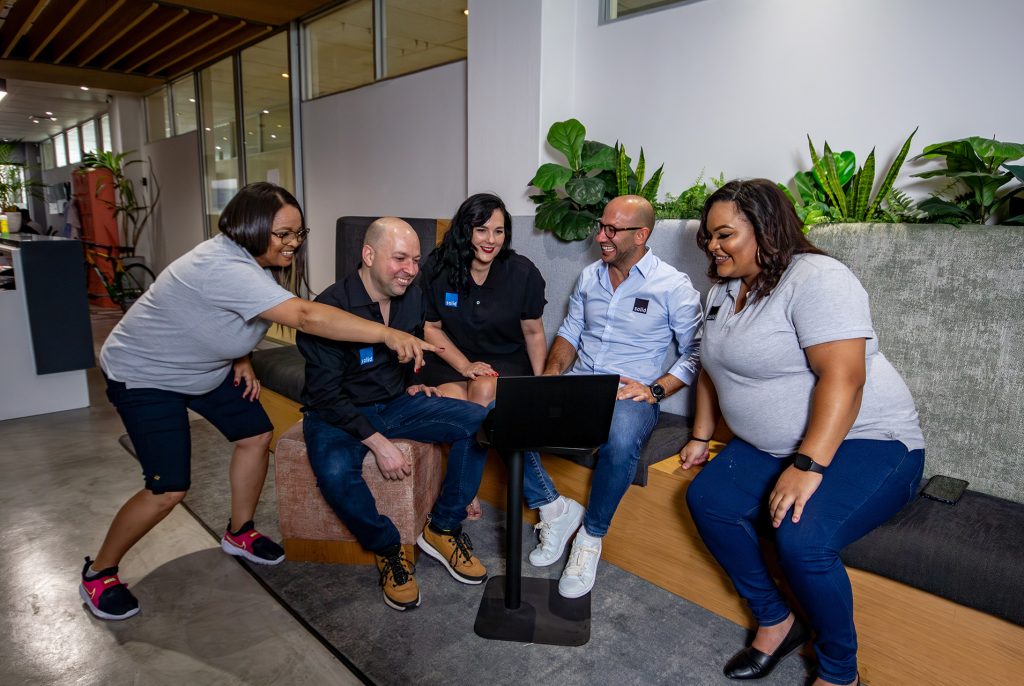
Every business out there wants to grow. Whether it’s growing their customer base, growing their profits, or growing their teams to help them accomplish both of those ambitions. Bringing on new team members is an exciting prospect for most companies – it means that you have more humans who are ready to embrace your culture and help you to achieve your goals. But, while most businesses think of the exciting opportunities that lie ahead for their new hire, the admin side of taking on new team members can’t be ignored.
They need to be added to the payroll. If they’re going to be working from the office, they need to have a desk to sit at. If they’re going to be working from home, they need to have reliable connectivity. And they need to be onboarded.
This last step is one that businesses often undervalue, addressing it as more of an afterthought than anything else. They don’t realise the value that the right IT onboarding for their new recruits can have for their company.
What is Onboarding?
Many companies that have heard of onboarding before likely think of it as an external tool. Businesses often use onboarding to highlight the value of their services to their customers and prospects through email marketing and the like. But when it comes to bringing a new team member onboard, the phrase takes on a bit of a different meaning.
IT Onboarding is all about making sure that your team members are set up for success, and have all the apps, tools and access that they need to work productively, while still keeping your business secure.
What Is The Importance of IT Onboarding For New Employees?
1. Company Culture
It’s a well-known fact – businesses that have a strong and positive company culture have far better employee satisfaction. You want your humans to be happy when they work for you, and those who understand and embrace your company’s goals, ambitions, and values are far less likely to look at leaving.
Onboarding is the perfect opportunity for your new hire to experience your company culture, learn more about your values, and connect with the humans around them.
2. Accessibility
Whether your teams are in the office, working from home, or a combination of the two, you want to make sure that they have access to the resources they need to succeed. For someone who’s new to a company, there’s nothing worse than having to ask permission every time they try to open a file. It’s awkward, it’s uncomfortable, and it’s entirely unnecessary. Making sure that your new hires are added to the right Microsoft groups and given the right access will see them working more efficiently, and easing into their role more quickly.
3. Productivity
There’s often a steep learning curve for everyone involved when you hire a new human. From their perspective, there are so many new people to meet, new platforms to acquaint themselves with, and a sense of wanting to jump straight in and start making their mark, but not having the confidence or the tools available to do that. From your company’s perspective, you want to motivate every employee, but no two people are the same. What works for one person, doesn’t necessarily work for another, and learning what motivates and encourages a new employee takes time. Time that takes away from the work that they could be doing.
This is why technology onboarding is critical in boosting productivity, not just from the employee’s standpoint, but from your own as well. Taking the time to learn what tools they need, and giving them the right access to those tools, is essential. Making sure that they have everything that they could possibly need to be productive, to start working, and to smoothly make the transition into your business can see both of you being more comfortable and more satisfied with the end results.
4. Security
You want to give your teams access to the data that they need, and make sure that they’re able to work
productively. But cybersecurity is an ever-growing concern, and the more people that have access to the information your company holds, the greater the risk of a data breach.
IT Onboarding plays a critical role in securing your company’s documents and data. By taking the time to
add new team members to your network, providing them with a company email address and training them in email security, and making sure that they have the right access (without necessarily giving them free reign), you can ensure that your company is as protected as possible from external threats and internal threats alike. After all, human error is a huge contributing factor when it comes to data loss.
Outsourced IT Support Could Be Boosting Your Business Growth.
Is It Only New Employees That Need To Be Onboarded?
We’ve looked at the benefits of IT onboarding for new employees, but there are plenty of advantages when it comes to other types of onboarding as well. Take devices, for example. Just as new employees need to be introduced to the company, new devices need to be introduced to your existing network. Whenever someone gets a new phone, or laptop, or printer, you’ll want to make sure that it has the right tools and access attached to it. You’ll also want to make sure that your network is prepared for either additional traffic, or setup to handle as many devices as your company is using – a particular issue when you’ve got everyone accessing the office WiFi from their cellphone, laptop and PC simultaneously.
What Does Solid System's IT Onboarding Involve?
There are various different ways that businesses can onboard their humans – from training, to providing them with access, to setting up their work stations and devices. At Solid Systems, we like to think of IT onboarding as a three-part process:
You can onboard new humans
From a technology standpoint, this involves giving your new hire all of the access that they’re going to need. This usually includes, at minimum, a company email address. But if you’re using Microsoft solutions, then they’re going to need a Microsoft license. If they’re going to be working with a team, you’ll want to add them to the relevant Microsoft group. This will make sure that they automatically have access to all the files and data that they need right from the get-go, and can collaborate quickly and easily with their team members.
Want to learn more about Microsoft groups, and how they can help your business? Check out this article.
You can onboard new devices
This will often go hand-in-hand with taking on a new hire. They’re going to need a device, and you want to make sure that it’s set up in the right way. Even if they’re going to be using their own laptop or computer, you still want to make sure that it’s set up to access your network securely. And it’s not just new humans that need to have their computers onboarded. Whenever someone at your company gets a new device – a laptop, a cellphone, a PC, a Mac – you’ll want to make sure that it’s set up to access your network, and has all the tools that your teams might need to be productive. This includes installing all the apps that you expect a team member to use, which may differ depending on which team the human is in. Your marketing team, for example, may need access to PowerPoint for presentations, while your finance team would have a far greater need for Excel spreadsheets.
And then there’s advanced onboarding
While installing Microsoft apps may form part and parcel of IT onboarding for a new device, there are some apps that need further testing to make sure that they meet each individual’s needs. Or maybe you need to make sure that every device in the office is able to access the new printer. Perhaps you need to backup every employee’s data to the cloud, and make sure that backups are regularly scheduled to keep your database up to date. All of this is what we refer to as ‘advanced onboarding’.
But every business’ onboarding needs are going to be different. You might want to onboard a new human, but have the expertise at hand to make sure the devices are set up in the right way. Or maybe you want to take care of your own new hire onboarding, but want to outsource the device setup. There are plenty of options out there that make sure that whatever your IT onboarding needs are, your company and your humans are taken care of.
Are you ready to IT onboard your new hires and new devices? Don’t hesitate to get in touch with us today! IT onboarding is just one of the exceptionally human Managed IT services that we offer at Solid Systems.





